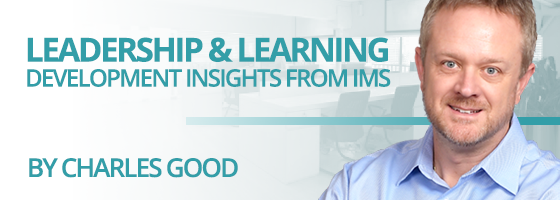All of us have hidden biases we carry from a lifetime of experiences regarding race, ethnicity, sexuality, age, gender, religion, etc. The issues with having these blind spots or biases are that they commonly influence our behavior without us being aware of their influence. Overcoming blind spots can help you maintain your confidence, but when they prevent you from seeing the truth, or make you blind to important issues. They need to be addressed. By doing so, leaders will be more sensitive to the needs of others and the impact they have on others within their organization.
The first step to avoid being continually blindsided by issues that result from these hidden biases is to develop self-awareness. We have a tendency to judge ourselves by our intent, not the impact we have on others. Our default setting usually attributes our successes to internal factors while looking at external factors to explain our failures – self-serving bias. A proven approach to improving your self-awareness and overcoming this bias is to attend an interpersonal skills program with a skilled educator who provides a proven framework that provides that self-awareness and tools to shrink our ‘blind spots.
During a recent IMS program, Dr. Jeanne Porter King provided this type of impactful virtual offering to IMS members, where she explored implicit biases and their impact on inclusive leadership. The prework she assigned to attendees had them complete at least one of the Implicit Association Tests (IAT), part of Harvard’s Project Implicit. Since their inception, these test have been used widely to study preferences, beliefs, and identity, and found applications in domains of health, education, business, government, the law and law enforcement. The test is currently available at 39 country sites, in 25 languages. There is also an excellent companion book on this topic by the designers of the IAT test titled, Blindspots: Hidden Biases of Good People. Attendees found these tests to be very effective at uncovering some of their blind spots.
Throughout the program, attendees were asked to share surprises or ‘ahas’ from the results they received and insights about their implicit biases. Dr. Porter King also went through her 3R strategy for mitigating these recently discovered implicit biases. The following represents the three parts of her strategy.
RECOGNIZE
The first step is always to become aware of these biases by consciously recognizing them. You can do this by taking tests such as the IAT (see above), taking note of unintended outcomes with others, or simply accepting feedback and insight from others.
REFLECT
In this step, you can now shift your perspective and choose a different response since you are consciously and deliberately aware of these biases. You may also want to analyze further what having these biases mean for you and your team moving forward.
REMEDY
During this final step, you are implementing strategies that lead to unbiased decisions, increasing interactions across race, gender, age, etc., and attempting to use different and multiple perspectives in your decision-making.
Leaders need to be confident in their abilities but they also need to have enough wisdom to know that they’re not going to see everything. And, I believe that is a critical skill all great leaders possess. Remember, the most common blind spot is believing others have them, but you don’t.
ABOUT CHARLES GOOD
Charles Good is the president of The Institute for Management Studies, which provides transformational learning experiences that drive behavioral change and develop exceptional leaders. Charles is an innovative and resourceful leader who specializes in bringing people together to develop creative organizational and talent strategies that enable business results. His areas of expertise include assessing organizational skill gaps and leading the design, creation and delivery of high impact, innovative learning solutions that achieve business goals.
